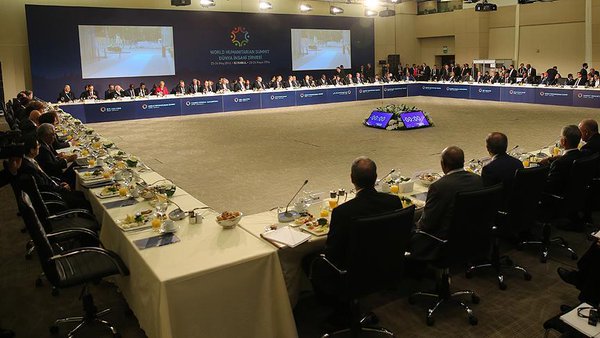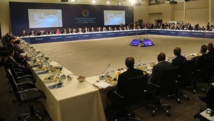"This is a once in a generation opportunity to to set in motion an ambitious and far-reaching agenda to change the way that we alleviate and prevent the suffering of the world's most vulnerable people," UN Under Secretary General for Humanitarian Affairs Stephen O'Brien told reporters ahead of the meeting.
He said that the summit differed from other such events as it was not aimed as winning financial pledges but a comprehensive strategy for dealing with crises such as the estimated 60 million people displaced around the world.
UN Deputy Secretary General Jan Eliasson said that the meeting aimed to tackle the "root causes" of crises emanating from conflict, as well as climate change.
"We spend so much on dealing with the late causes of conflict but very little on prevention," he said, urging a focus on the early rather than the late stages of the conflict.
Eliasson said the summit should also see a "strong call" for respect of international humanitarian law, which has badly decayed with attacks on schools and hospitals in the conflicts in Syria, Afghanistan and Yemen.
"We have seen a lack of respect for international humanitarian law which is causing huge damage in the world."
The summit is the result of years of planning but there has been criticism that its actual outcomes could fall well short of its lofty ambitions.
Medical charity Doctors Without Borders (MSF) is boycotting the event, saying it risked being just a "fig leaf" for the world's failure on humanitarian action.
"I regret very much that they came to that decision," said Eliasson.
"One of the main purposes of this conference is our outrage against violations of international humanitarian law," adding he hoped the "convictions they (MSF) stand for" would come out of the meeting.
---------------------------------------------------------------------------------------------------------------------
He said that the summit differed from other such events as it was not aimed as winning financial pledges but a comprehensive strategy for dealing with crises such as the estimated 60 million people displaced around the world.
UN Deputy Secretary General Jan Eliasson said that the meeting aimed to tackle the "root causes" of crises emanating from conflict, as well as climate change.
"We spend so much on dealing with the late causes of conflict but very little on prevention," he said, urging a focus on the early rather than the late stages of the conflict.
Eliasson said the summit should also see a "strong call" for respect of international humanitarian law, which has badly decayed with attacks on schools and hospitals in the conflicts in Syria, Afghanistan and Yemen.
"We have seen a lack of respect for international humanitarian law which is causing huge damage in the world."
The summit is the result of years of planning but there has been criticism that its actual outcomes could fall well short of its lofty ambitions.
Medical charity Doctors Without Borders (MSF) is boycotting the event, saying it risked being just a "fig leaf" for the world's failure on humanitarian action.
"I regret very much that they came to that decision," said Eliasson.
"One of the main purposes of this conference is our outrage against violations of international humanitarian law," adding he hoped the "convictions they (MSF) stand for" would come out of the meeting.
---------------------------------------------------------------------------------------------------------------------









 Home
Home Politics
Politics











